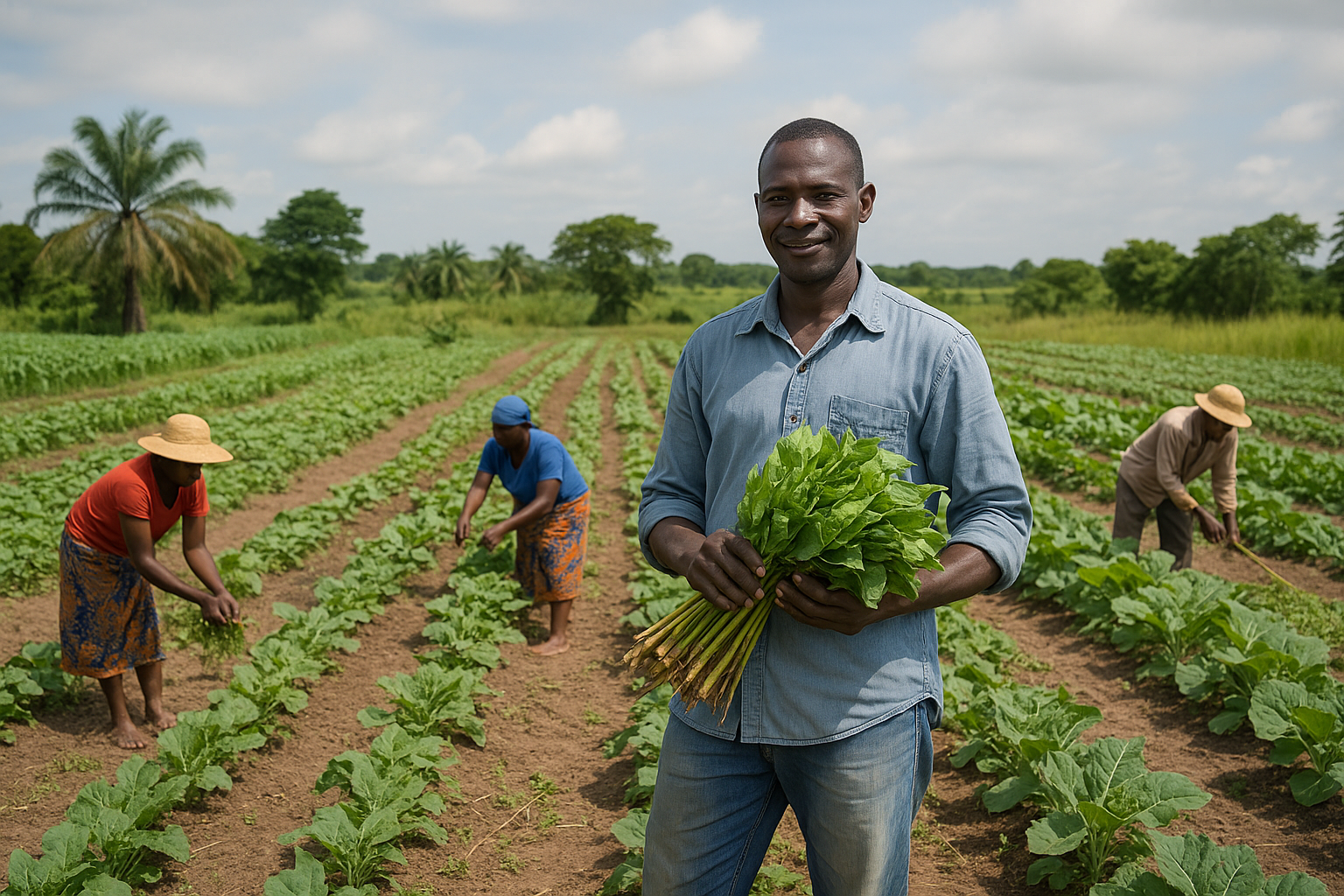Greening the Lands: ILO-Led Project Revives Lebanese Agriculture and Jobs
During the visit, officials held a roundtable discussion with local farmers and agricultural workers, providing a unique opportunity for direct feedback from beneficiaries.

- Country:
- Lebanon
In a concerted effort to boost rural livelihoods, enhance agricultural infrastructure, and build climate resilience, the International Labour Organization (ILO), in partnership with the Governments of Germany and the Netherlands, has launched a series of transformative activities in Lebanon under the flagship "Greening the Lands" initiative. Implemented through the ILO’s Employment-Intensive Infrastructure Programme (EIIP), the project is a cornerstone of sustainable development and employment generation in the country’s vulnerable rural regions.
Field Visit to Mhaydsse: A Glimpse into Real Impact
On 15 July 2025, a high-level field visit was organized to the agricultural town of Mhaydsse, located in the Metn district, east of Beirut. Leading the visit was Peter Rademaker, ILO Deputy Regional Director for Arab States, who was accompanied by representatives from the Embassy of Germany, the Embassy of the Netherlands, the Lebanon Reforestation Initiative (LRI), and the Ministry of Agriculture’s Green Plan Administration.
The delegation visited a newly constructed water reservoir, strategically located near walnut and fruit orchards. Designed to improve irrigation capacity and increase farm productivity, the reservoir is part of a broader infrastructure investment aimed at addressing Lebanon’s worsening water scarcity, improving food security, and expanding employment opportunities in the agricultural sector.
Empowering Farmers and Local Communities
During the visit, officials held a roundtable discussion with local farmers and agricultural workers, providing a unique opportunity for direct feedback from beneficiaries. Farmers shared how improved water storage and fencing infrastructure reduced theft, expanded cultivation areas, and increased yields.
Participants also highlighted persistent challenges, including:
-
Limited access to affordable agricultural inputs,
-
Chronic water shortages during dry seasons,
-
Administrative hurdles in securing state support,
-
And difficulty accessing credit and financing for expansion.
The conversation covered occupational safety and health, pointing to the need for better training and equipment. Farmers advocated for stronger collaboration with the Ministry of Agriculture, clearer communication with implementing partners, and sustained investment in climate-smart infrastructure.
An Inclusive, Employment-Intensive Approach
The “Greening the Lands” initiative is grounded in the ILO’s Employment-Intensive Infrastructure Programme, which prioritizes the use of local labor, materials, and enterprises to implement rural infrastructure. The approach not only builds assets like reservoirs and rock fences, but also generates decent employment, particularly for women and marginalized groups.
“The ILO, together with local partners, is building worker capacities that help improve the environment they live in and the infrastructure they rely on,” said Peter Rademaker. “This initiative empowers vulnerable communities in Lebanon to restore their environment and enhance farming opportunities.”
In its second phase (2024–2025), the programme aims to:
-
Create over 130,000 workdays,
-
Employ more than 2,300 workers,
-
Ensure 30% female participation,
-
And include at least 5% persons with disabilities.
To date, more than 1,800 farmers across Lebanon have benefited from the initiative through the construction of retaining walls, irrigation systems, and fencing infrastructure.
International Solidarity and Development Diplomacy
Representing the Netherlands, Marieke Wierda, Chargée d’Affaires at the Dutch Embassy in Lebanon, highlighted the initiative’s alignment with the PROSPECTS Partnership — a regional programme supporting host communities and refugees in the Middle East.
“This initiative demonstrates how investments in sustainable infrastructure can directly improve rural livelihoods, especially for the most vulnerable,” she said. “By working together with local communities, the ILO, and the Ministry of Agriculture, we are supporting long-term resilience and opportunity for both host communities and refugees.”
A representative from the German Embassy echoed similar sentiments, noting Germany’s pride in backing a programme that delivers short-term income support, upskills vulnerable populations, and enhances gender inclusion.
“We are specifically happy that the on-the-job training helped the female workers to build valuable skills,” they remarked, noting the successful outcome of Germany’s financial support through the KfW Development Bank.
A Model for Resilience Amid Lebanon’s Crises
Lebanon continues to face significant economic and environmental challenges, including currency depreciation, political instability, and climate change impacts. Against this backdrop, the Greening the Lands initiative is a beacon of hope, showcasing how targeted investments in climate-resilient infrastructure can yield broad economic and social dividends.
As the programme progresses, it is expected to not only restore ecosystems and revive agricultural productivity, but also foster community resilience, promote social cohesion, and build a skilled rural workforce prepared to adapt to future challenges.
ALSO READ
Rwanda Launches $9M Ecosystem Restoration Project to Boost Climate Resilience
Sevilla Summit Highlights Urgent Need to Scale Climate Resilience Financing
Pioneering Climate Resilience: NCDEX and IMD's Strategic Weather Derivatives Launch
Kenya and WMO Strengthen Climate Resilience with Early Warning Partnership










